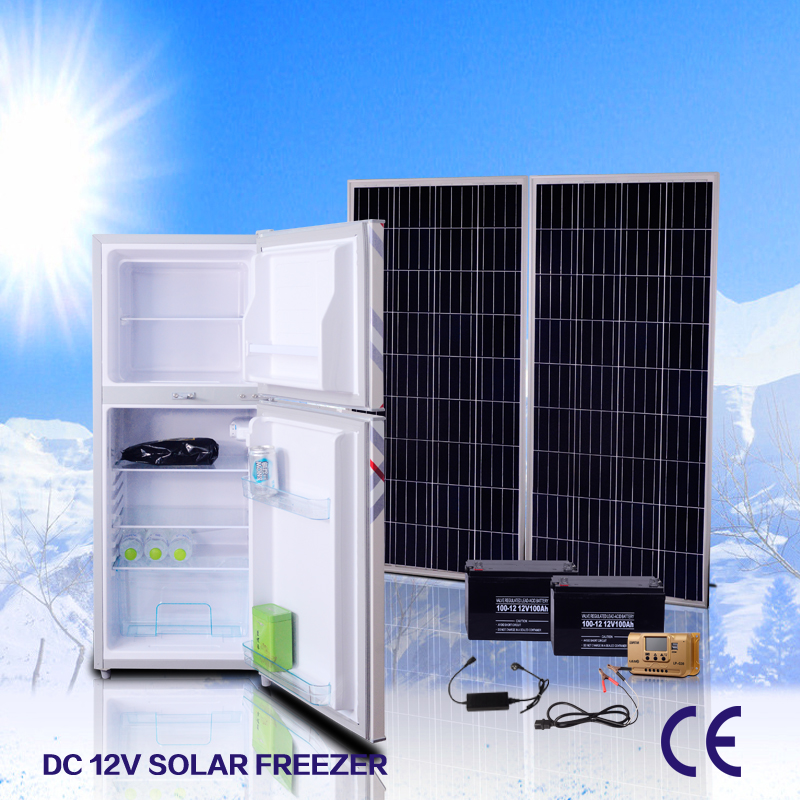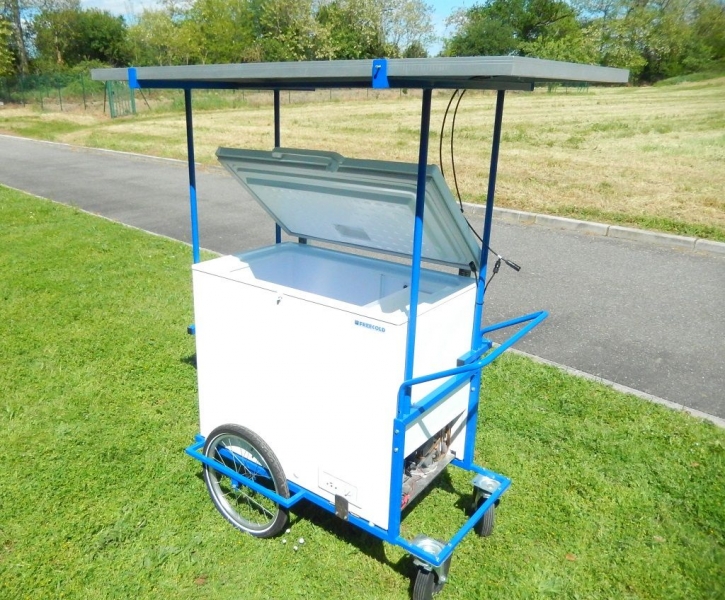Unlocking the Potential: How Solar Fridge Can Transform Your Power Intake
The introduction of solar fridges provides a compelling chance to reshape our strategy to energy consumption. By successfully making use of renewable solar power, these systems guarantee not just to reduce dependancy on traditional energy resources however also to improve food preservation and protection, specifically in underserved regions. As we discover the details of how solar fridges operate and their broad-ranging benefits, it becomes obvious that their combination right into day-to-day life might cause considerable developments in sustainability. What continues to be to be taken a look at are the useful effects and options customers should consider in this progressing landscape.
Exactly How Solar Refrigerators Job
Solar refrigerators operate by taking advantage of solar power to power their cooling mechanisms, successfully making use of sustainable sources to keep reduced temperatures. These systems usually include photovoltaic (PV) panels that convert sunshine right into electrical power. This electricity is after that used to run the compressor, fan, and other components crucial for refrigeration.
The primary system in a solar refrigerator is the vapor-compression cycle, comparable to traditional fridges (solar refrigerator). The compressor presses cooling agent gas, increasing its temperature level and pressure. This gas then takes a trip with a condenser, where it launches heat and condenses into a fluid state. The liquid cooling agent moves right into an expansion valve, where it quickly expands, cooling before going into the evaporator. In the evaporator, the refrigerant takes in warmth from the interior of the refrigerator, hence decreasing its temperature.
Solar refrigerators may likewise include battery storage space systems, allowing them to run during non-sunny hours or in gloomy conditions. This guarantees a constant cooling effect, making them suitable for different applications, specifically in remote areas lacking accessibility to trusted electrical energy. By incorporating solar innovation, these refrigerators add to energy effectiveness and sustainability in food storage space and conservation.
Key Advantages of Solar Refrigeration
The combination of solar modern technology into refrigeration systems offers many benefits that expand beyond plain energy financial savings. One of one of the most substantial advantages is the reduction of carbon impact. By utilizing renewable solar energy, these systems reduce dependence on fossil gas, adding to a more lasting environment. This shift is particularly vital in regions where electricity supply is undependable or non-existent, enabling neighborhoods to preserve food conservation and safety.

Furthermore, making use of solar energy can cause power freedom, making it possible for users to create their own power and reduce susceptability to fluctuating energy prices. Generally, the fostering of solar refrigeration provides a multifaceted option that not just addresses power consumption yet additionally advertises ecological sustainability and enhances food preservation capacities in underserved areas.
Energy Cost Savings and Effectiveness
With the rising prices of power and raising understanding of ecological issues, energy financial savings and efficiency have actually come to be essential factors to consider in refrigeration technology (solar refrigerator). Solar refrigerators leverage renewable resource resources, considerably decreasing reliance on traditional electrical power grids. By harnessing solar power, these systems minimize energy consumption, making them an economically viable alternative for both domestic and commercial applications
The style of solar refrigerators integrates sophisticated insulation products and energy-efficient compressors, which guarantee optimum performance while utilizing minimal power. Several solar refrigerator models additionally include programmable setups and clever modern technology that enable individuals to monitor and handle energy usage efficiently. This smart style results in minimized electrical energy bills and reduced operational prices in time.
In addition, solar fridges are equipped with batteries that save excess energy generated during bright days, allowing continual operation even throughout periods of low sunlight. This capacity boosts their efficiency, ensuring that food and disposable things are great site consistently kept at risk-free temperatures.
Ecological Impact and Sustainability
Harnessing renewable resource not just improves power savings but likewise considerably adds to environmental sustainability. solar refrigerator. Solar fridges operate tidy, renewable resource resources, lowering dependence on fossil fuels that add to greenhouse gas exhausts. This change in power intake minimizes environment change effects and promotes a healthier earth

Additionally, solar fridges are especially advantageous in remote locations where electrical energy accessibility is minimal or non-existent. By giving a This Site feasible refrigeration option without the demand for substantial infrastructure, they promote lasting growth in underserved communities. This access not just boosts food safety and security yet also decreases food putridity, thus reducing waste.
Selecting the Right Solar Fridge
Selecting the excellent solar fridge calls for mindful factor to consider of numerous variables to guarantee ideal efficiency and performance. Examine the power requires based on Extra resources your intake patterns. Compute the complete wattage required to maintain your products cool down, which helps in choosing a system with an appropriate photovoltaic panel dimension to meet these needs.

One more important aspect is the sort of solar refrigerator-- compressor or absorption. Compressor models are typically more reliable and better suited for atmospheres with fluctuating temperatures, while absorption refrigerators may be more effective for off-grid applications due to their simpleness.
Last but not least, guarantee the device has reputable solar elements, consisting of panels, batteries, and a charge controller, to ensure long-lasting performance. By meticulously considering these factors, you can choose a solar refrigerator that aligns with your power objectives and adds to lasting living.
Conclusion
In summary, solar fridges represent a considerable innovation in energy usage, offering a lasting option to standard refrigeration approaches. By utilizing solar power, these systems not only minimize dependence on nonrenewable fuel sources but additionally enhance food protection and decrease ecological impact. The combination of advanced innovations makes certain effectiveness and cost-effectiveness, advertising energy independence. As the adoption of solar refrigeration increases, a transformative shift in the direction of cleaner power practices and reduced food waste is expected, contributing positively to worldwide sustainability efforts.